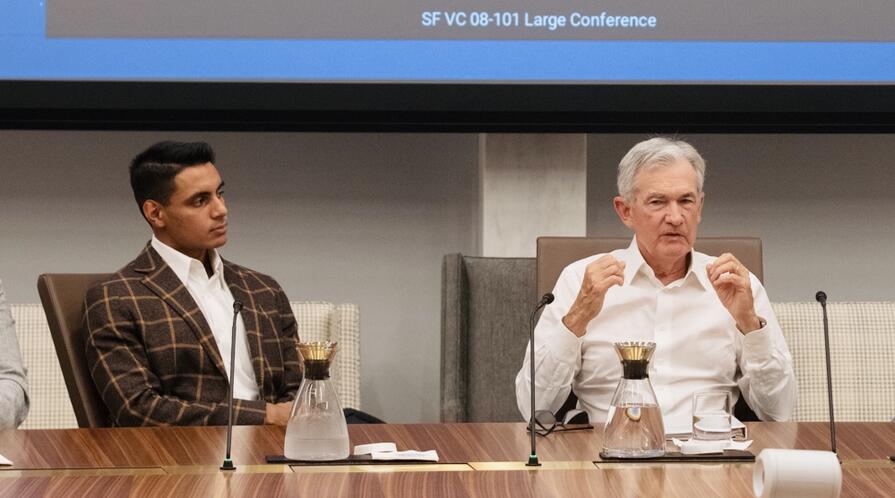A Summer of Entrepreneurship: Building Products to Protect the Public During the AI Explosion
When I arrived at Stanford in September 2022, I’d just stepped out of a product manager role at a large government contractor. My career had focused on providing policymakers with the best open-source information possible around a myriad of foreign policy issues. Over the preceding years, that work had become increasingly intertwined with artificial intelligence (AI), not just as a subject of analysis but as a critical tool in the analytic process. In enrolling in the Ford Dorsey Master’s in International Policy (MIP) program, situated in the heart of Silicon Valley, I hoped I could better understand AI and how it would reshape geopolitics.
My timing was serendipitous. Just as I settled in, OpenAI unveiled ChatGPT, and the world changed. It was a whirlwind period of wild speculation, anxiety, and excitement. To cut through the noise, I sat in on an advanced course on machine learning and enrolled in the Computer Science department’s core course, Programming Abstractions, to build my programming skills. Blending my policy framework development in MIP courses with technical study at Stanford’s renowned Computer Science department was exactly what I hoped Stanford would provide.
What I didn’t expect, however, was how differently I was starting to think about my future after the program.
The Entrepreneurial Leap
The original plan for MIP was to get smart and then apply what I learned within an established organization, like my former employer or the government. I began to wonder if, rather than providing information to decision-makers as I had previously in my career, I could combine my product management experience and burgeoning CS competency in a different way. Could I attack the same problems I’d been working on for years, but from the bottom up? Could I use technology to empower the broader public to become more resilient to misinformation and polarization?
The approaching summer seemed like the opportunity to test my product ideas and the possibility of starting a business around them. MIP’s summer funding made it feasible to take advantage of that opportunity while still paying my rent. It also added helpful structure to my plan, requiring me to record my hours and find a mentor to oversee my progress.
My former colleague, David, with whom I have a strong relationship built on trust and shared vision, agreed to be my mentor. He had recently launched his own company in a related space and was able to share a wealth of experience and insights.
The Summer of Coding and Discover
Summer came, and I dove headfirst into coding, dedicating countless hours at the corner desk of my Hoskins apartment to building something tangible that embodied my vision. I also began immersing myself in the Bay Area’s tech ecosystem - attending AI seminars, venture capital events, and networking with founders.
The results of those first weeks were encouraging. I prduced a working prototype that used AI to identify misleading information online and, by referencing trusted sources, provide missing context and corrective information to the reader. It was real progress toward a world where we no longer rely on ineffective fact-checking after readers are exposed to misleading information and form their opinions. Instead, AI could help every news reader spot deceptive content in real-time - during the opinion formation process.

Despite my progress, I realized that if I were going to keep up with the pace of the hyper-competitive AI startup field, I would need a partner.
Finding a Co-founder
With a working prototype of my Critical Reader Google Chrome extension, I felt ready to seek out an experienced partner who could help scale my vision. Y Combinator’s co-founder matching platform was my arena. It was a whirlwind of meetings and ideas, but eventually, I connected with the former CTO of a successful startup, who shared my commitment to revolutionizing digital information sharing.

We hit it off and decided to test our partnership with a 30-day trial. We examined my prototype critically and decided to pivot towards a simpler, more marketable product. In a few weeks, we had a minimum viable product ready and began user testing. As expected, the feedback was a mixture of praise and criticism, but it was energizing to have the critical data we needed to iterate and improve.
Beyond coding, we invested considerable effort into refining a mutual vision and business strategy. We began exploring non-profit frameworks and various hybrid business models that could achieve the scalability of a for-profit enterprise while preserving the principles that motivated us.
Renewed Vision
In a few short months, my curiosity had evolved into a venture with real users and a business model. I had also changed. The experience developing financial forecasts and strategic plans significantly enhanced my professional toolkit and gave me first-hand experience with the reality of starting a business.
Now, as I enter my penultimate quarter at Stanford, I am able to develop products and explore partnerships with a newfound clarity of purpose. My summer of entrepreneurship added a new dimension to my MIP experience and has set the stage for what comes after the program ends.

Meet the MIP Class of 2024


































